99% of Yunnan coffee beans are mainly produced in Yunnan. Which brand has the best overall flavor of Yunnan small coffee beans?

In 1904, when French missionary Tian Deneng came to Dali, Yunnan Province from Vietnam to preach, he planted the first batch of coffee trees in the local village of Zhukula, which is the beginning of coffee cultivation in Yunnan Province.
With the reform and opening up, the industry accelerated development, coffee planting area in Yunnan expanded year by year. So far, many large brands have also begun to join Yunnan coffee industry, such as Nestle, Starbucks, COSTA and so on.
Yunnan coffee-producing areas
With the expansion of the fine coffee market, Yunnan, as an important coffee producing area in China, has broad prospects for development.
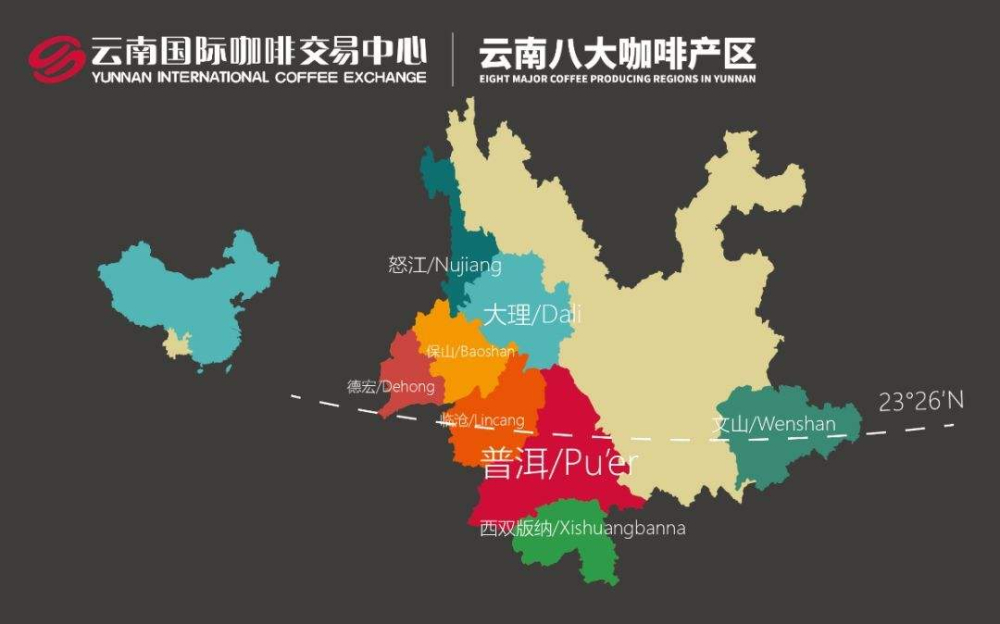
Yunnan's coffee-growing region is located in the southwest of the province, just between the coffee gold belt, that is, the Tropic of Cancer. The altitude is about 1000-2000 meters, the mountainous terrain is mostly mountainous, the mountain slope is large, the soil is fertile, and farmers generally plant coffee trees on the hillside. Yunnan local abundant rainfall and sunshine, high altitude formed a significant temperature difference between day and night, summed up to form a very unique terroir conditions for planting coffee trees.
Yunnan coffee beans are mainly planted in Lincang, Baoshan, Pu 'er and Dehong.
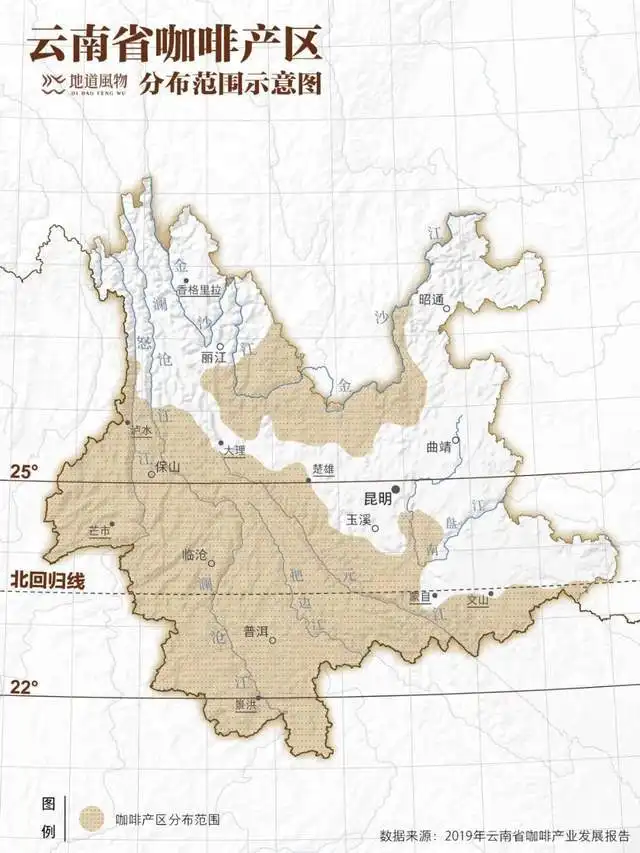
Lincang
Lincang, named after the Lancang River, is located in the southwest of Yunnan Province and borders Myanmar in the west. The terrain here is complex, with an altitude of more than 1000 meters and an annual average temperature of 17.3 degrees Celsius. There are no distinct seasons in spring, summer, autumn and winter, but dry season and rainy season. June is the beginning of rainy season every year, lasting 3-4 months. Sufficient rainfall and sunshine plus large temperature difference between day and night make it very suitable for planting coffee, a tropical plant at high altitude. Under the advantage of geographical environment, coffee fruit absorbs more nutrients and has stronger flavor and taste.
In order to truly explore coffee cultivation, Qianjie Coffee also has its own coffee plantation estate in Lincang area, which was opened in 2013. Front Street planted elegant iron pickup varieties here, carefully studied and managed, and finally produced the first batch of coffee fruits in the seventh year, namely Front Street 2013 Coffee.
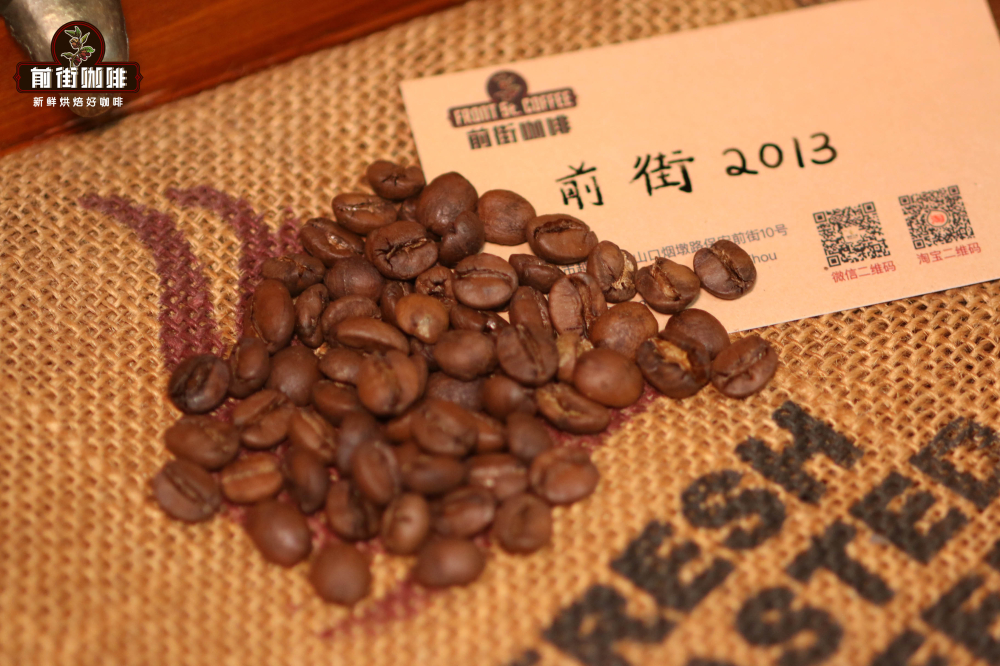
Front Street Coffee: Front Street 2013 Coffee Bean
Production area: Lincang, Yunnan
Manor: Front Street Coffee Manor
Altitude: 1300 m
Type: Iron Pickup
Treatment method: sun treatment method
Baoshan
Baoshan coffee cultivation began in the mid-1950s, the first coffee seedlings were introduced from Southeast Asia by the late patriotic overseas Chinese Mr. Liang Jinshan. Baoshan Arabica coffee quality has been recognized by the state, in 2010 by China's AQSIQ as a national geographical indication products.
Baoshan's average temperature is about 21.3 degrees Celsius, and the highest temperature reaches 40.4 degrees Celsius. There is basically no frost all year round. It is recognized as the best place to grow small coffee. With the expansion of international trade, Baoshan Lujiangba Arabica coffee is recognized by coffee experts at home and abroad. Baoshan Arabica coffee has been evaluated as "strong but not bitter, fragrant but not strong, fragrant and mellow; rich in oil, rich in fruit acid and lasting in sweetness; this is the top grade coffee."
Yunnan ration beans on the front street have chosen Baoshan washed small coffee. I believe some friends have found that most of the ration beans on the front street are washed. Qianjie believes that washing treatment can better present the basic flavor of coffee, such as this washed Yunnan small grain, washing treatment shows the mellow nutty tone and soft acidity of Yunnan coffee. The original intention of Qianjie to launch ration beans is to let coffee novices taste the representative flavors of different regions at the most affordable price, which can help get started quickly.

PU 'er
When it comes to Pu 'er, most people think of tea. In fact, Pu' er City is the largest coffee planting base in Yunnan. In the 1990s, Nestle started an agricultural technical assistance service project in Yunnan to open up demonstration farms. Nestlé has established a coffee agronomic service in Yunnan Province to develop coffee seeds suitable for local soil conditions and climate, and to provide technical advice to local coffee farmers to improve the yield and quality of Yunnan coffee beans. Today, the high-quality coffee beans produced by Pu 'er are also exported to European and American countries.
Dehong
Dehong, as the "hometown of coffee in China", introduced coffee seeds from the border of China and Myanmar for the first time in 1951, and began to plant coffee trees on a large scale. Dehong owns the largest coffee seed gene bank in China-Ruili Coffee Germplasm Nursery of Ministry of Agriculture, which is one of the first nine tropical crop germplasm nurseries awarded by Ministry of Agriculture.
Coffea yunnanensis
We often hear that Yunnan Arabica coffee is actually Arabica varieties, the original varieties planted in Yunnan is iron pickup, belonging to the ancient Arabica varieties, the growth of coffee beans particles are much smaller than Robusta, so called "small". The flavor of iron pickup truck is pure and elegant, but due to weak disease resistance, it is easy to get leaf rust, and the yield is low, which cannot meet the income demand of farmers. With the local promotion in Yunnan, a new variety Katim began to be planted in large areas to replace the original low-yield iron pickup varieties.
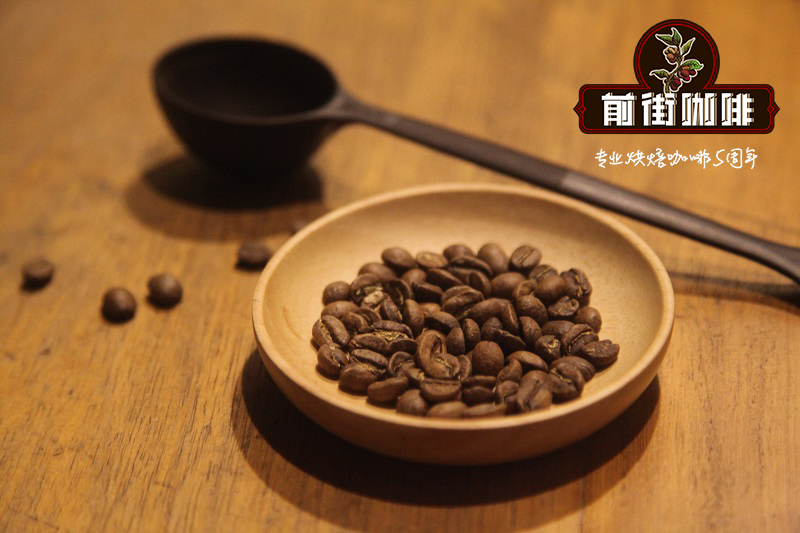
Katim inherited Tim's Robusta gene and was more resistant to coffee berry disease and coffee leaf rust, allowing coffee trees to thrive with only partial shade. Coffee fruit ripens quickly and yields high, so farmers tend to grow katim varieties.
water washing treatment
Due to the perennial rainy season, high air humidity and unstable sunshine, most Yunnan coffee beans choose washing treatment.
Put the picked coffee fruit into the machine to remove the peel and pulp, and then put it into a clean sink to soak, so that the acidic substances produced during fermentation decompose the pectin layer connected to the raw beans, and finally wash it clean and then take it to the sun to dry. Coffee thus treated avoids the negative fermentation acids found in sunlight and is cleaner.
Brewing advice
Qianjie thought that the washed Yunnan granules had softer and cleaner acid, so V60 filter cup with faster flow rate was selected. The cup body of the filter cup has multiple ribs, different lengths, which help to exhaust the air during extraction, so that the flow rate is accelerated, so the coffee flavor is more distinct.
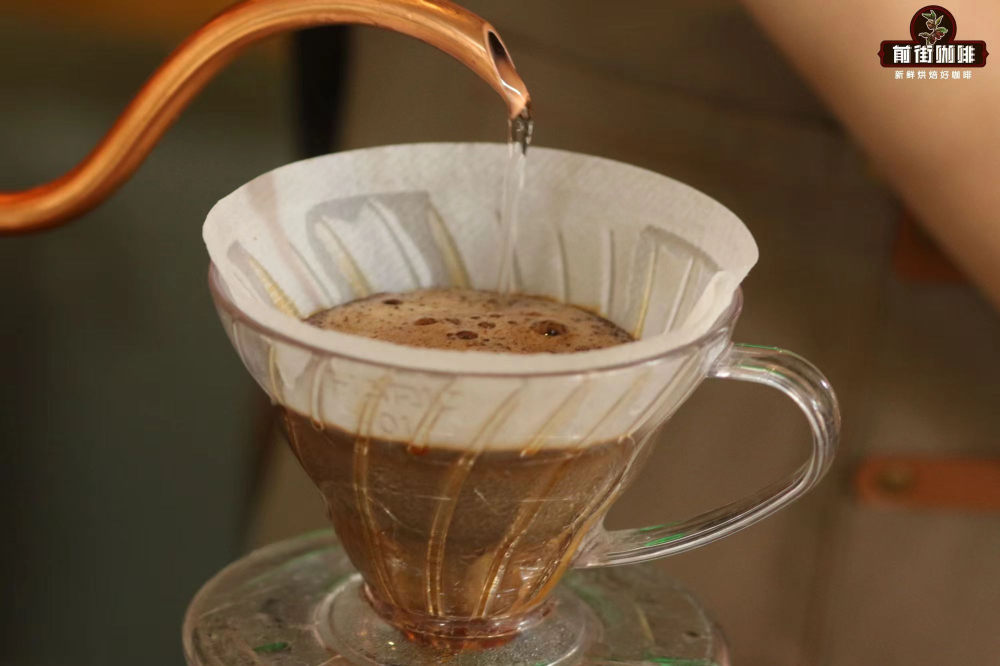
Filter cup: V60
Water temperature: 91℃
Grindability: Sieving rate 80% on No. 20 standard sieve
Powder water ratio: 1:15
Powder: 15g
Brewing, the front street adopts segmented extraction, coffee grinding is poured into the filter paper, water injection 30g from the center is steamed for 30 seconds, pay attention to the small water flow from inside to outside to circle smoothly, the second stage is injected with 95g water, and the coffee liquid is almost finished, and the third stage is injected with 100g until the coffee is completely filtered. The time is about 2 minutes, plus or minus about 10 seconds.
Yunnan small grain this ration bean after brewing, the entrance is nuts, brown sugar sweet feeling, as the temperature drops can drink plum acid, the latter section is black tea aftertaste, overall soft.
Professional coffee knowledge exchange More coffee bean information Please pay attention to coffee workshop (Weixin Official Accounts cafe_style)
More fine coffee beans, please add private WeChat Qianjie Coffee, WeChat: qjcoffeex
Important Notice :
前街咖啡 FrontStreet Coffee has moved to new addredd:
FrontStreet Coffee Address: 315,Donghua East Road,GuangZhou
Tel:020 38364473
- Prev
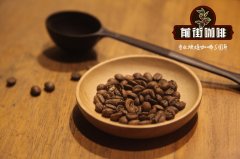
Zambian coffee producing areas produce fresh fruit and acidity
Professional coffee knowledge exchange More coffee bean information Please pay attention to Coffee Workshop (Weixin Official Accounts cafe_style) Front Street-Zambia Coffee Introduction Coffee was brought into Zambia by missionaries from Tanzania and Kenya in the 1950s. Coffee production, however, had to wait until the late s and early s, when funding from the world bank
- Next

What is the quality of coffee beans in Yunnan? it's the only coffee bean in Yunnan.
Professional coffee knowledge exchange more coffee bean information please follow Coffee Workshop (Wechat official account cafe_style) Qianjie-Yunnan Baoshan Coffee introduction Yunnan coffee varieties Yunnan coffee varieties mainly Typica and Bourbon this two classic high-quality coffee varieties as the main cultivation varieties, in 1991, the Katim Catimor series was introduced from Kenya
Related
- Beginners will see the "Coffee pull flower" guide!
- What is the difference between ice blog purified milk and ordinary milk coffee?
- Why is the Philippines the largest producer of crops in Liberia?
- For coffee extraction, should the fine powder be retained?
- How does extracted espresso fill pressed powder? How much strength does it take to press the powder?
- How to make jasmine cold extract coffee? Is the jasmine + latte good?
- Will this little toy really make the coffee taste better? How does Lily Drip affect coffee extraction?
- Will the action of slapping the filter cup also affect coffee extraction?
- What's the difference between powder-to-water ratio and powder-to-liquid ratio?
- What is the Ethiopian local species? What does it have to do with Heirloom native species?

